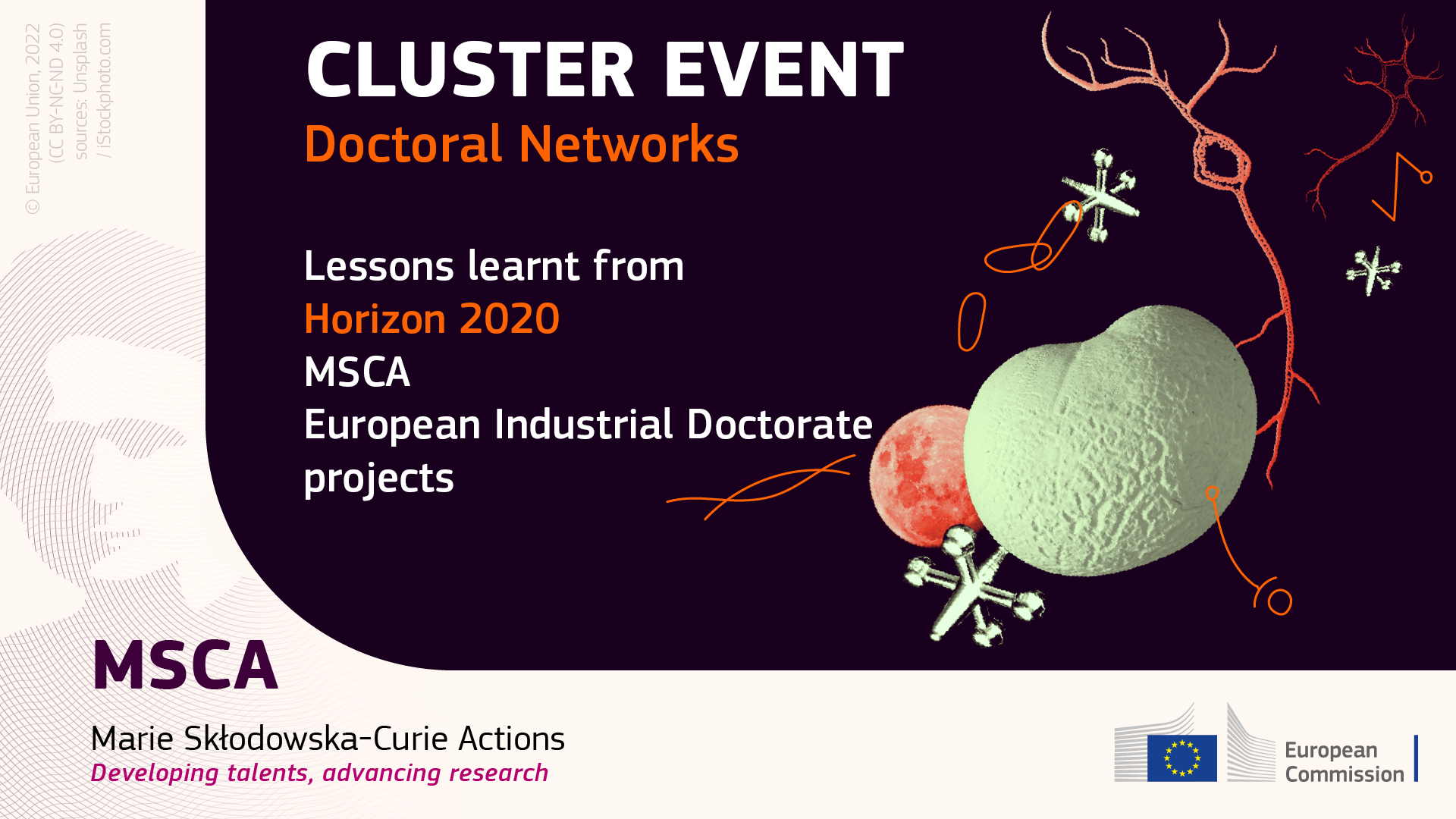On 10 November 2022, the European Research Executive Agency (REA), in cooperation with the Directorate-General for Education, Youth, Sport and Culture of the European Commission (DG EAC), organised an online Cluster event on European Industrial Doctorates (EID) funded under the Marie Skłodowska-Curie Actions (MSCA). The aim was to valorise the results and lessons learnt from Horizon 2020 EID projects.
The event brought together over 160 participants from MSCA EID projects, funded under Horizon 2020. Attendees represented both the academic and non-academic sector, which is essential for this particular type of MSCA- projects.
Documents:
EID Cluster Event - Concept note
EID Cluster Event - Presentation of EID survey results
EID Cluster Event - Presentation of EID project portfolio under Horizon 2020
- research staff
- Thursday 10 November 2022, 09:30 - 16:30 (CET)
Practical information
- When
- Thursday 10 November 2022, 09:30 - 16:30 (CET)
- Languages
- English
Description

The Innovative Training Networks are a key part of the Marie Skłodowska-Curie Actions under the Framework Programme Horizon 2020. There are three different implementation modes: European Training Networks (ETNs), European Joint Doctorates (EJDs) and the European Industrial Doctorates (EIDs).
The aim of EIDs is to train highly skilled researchers, and to stimulate entrepreneurship, creativity and innovation in Europe. By involving the non-academic sector in doctoral training, skills better match public and private sector needs.
The MSCA EID Cluster event represented a networking opportunity for a growing interdisciplinary community involved in the implementation of industrial doctoral programmes.
The event allowed participants to exchange views and provide feedback for policy-making with regards to the improvement of Industrial Doctorates (ID) in Horizon Europe, taking stock of the experience from Horizon 2020.
During the discussion participants underlined the crucial role that MSCA IDs can play in enhancing cooperation between higher education institutions and the non-academic sector, fostering innovation and knowledge transfer. Participants also highlighted the importance of having a balanced collaboration between both industry/business and academic supervisors, to help researchers choose the most suited career path.
The meeting was also an opportunity to identify and discuss solutions to potential barriers to the setup of new IDs, and to gather best practices based on lessons learnt.
A post-event survey sent to all attendees showed that overall, almost 90% of participants were highly satisfied by the discussions and that their expectations were fully met.
A detailed meeting report will be available soon.
